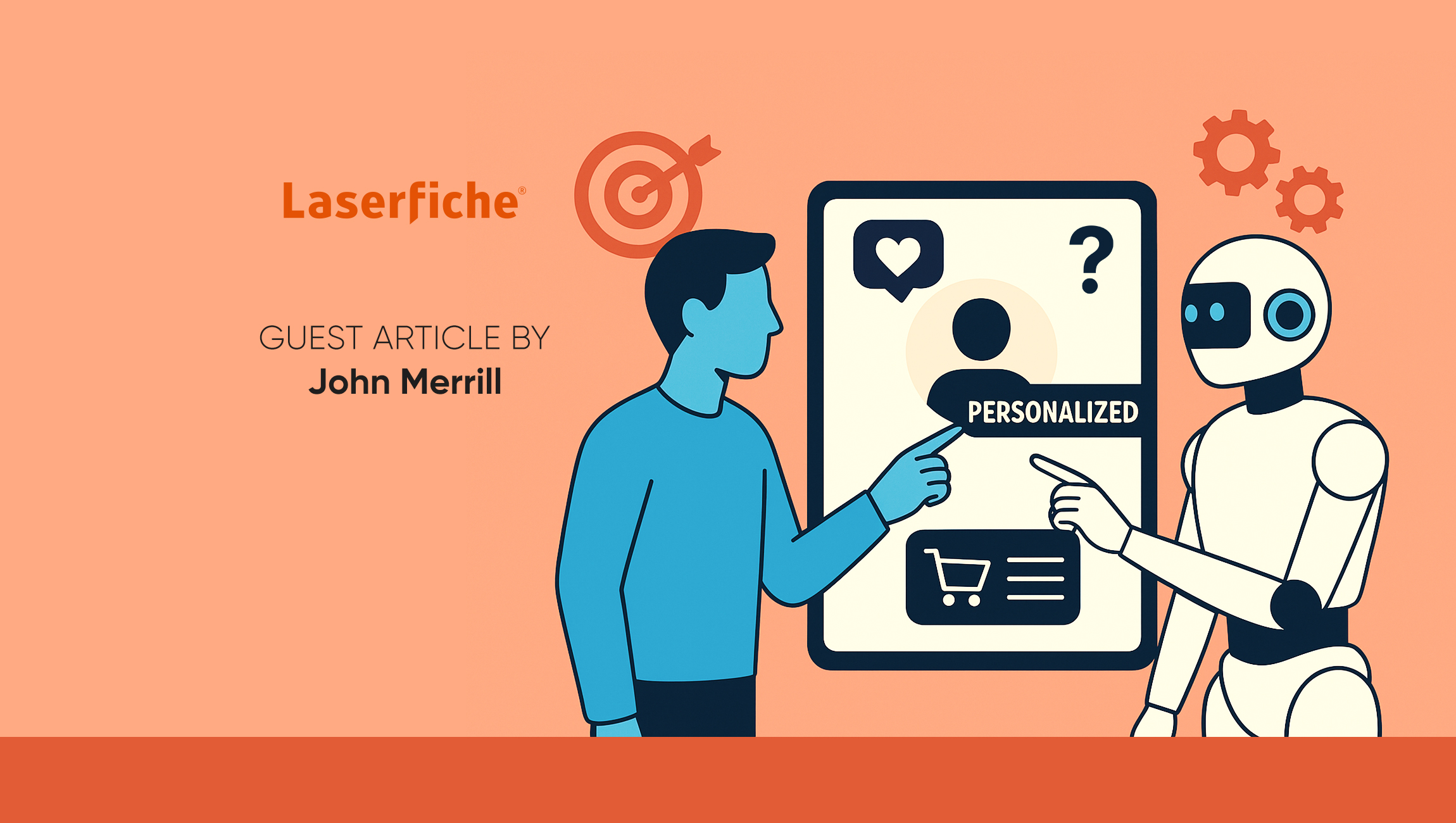Personalization has long been the North Star for marketers. Done right, it’s the difference between a brand that just sells and a brand that truly connects. Today, artificial intelligence (AI) is its most powerful compass pointing us toward that goal. From predictive product recommendations to dynamic email content, AI enables us to tailor messages with unprecedented precision, giving customers a better experience.
But here’s the big questions: At what point does personalization cross the line from being helpful to downright creepy?
While McKinsey has found that AI-powered personalization can increase marketing ROI by up to 30%, overstepping the bounds of creepiness can backfire. The very tools designed to build affinity, if misused, can erode trust.
The Double-Edged Sword of Precision
AI has the power to build trust with customers, making marketing more impactful, but that greatly depends on both intention and clarity. For example, when a music app like Spotify suggests a new artist because you’ve played similar songs, it feels helpful. But when a brand you’ve never engaged with references your personal details, it can feel more like prying.
This is the paradox: The same technology that builds trust can also break it. When personalization feels like surveillance, the customer journey stops being delightful and starts feeling invasive.
Marketing Technology News: MarTech Interview With Chris Golec, Founder and CEO at Channel99
When Personalization Feels Creepy
We’ve all been there: you browse a product once, and suddenly it follows you around the internet for weeks. Or product brands and offers instantly appear on your Facebook after discussing that product type with a family member, in a private setting. Or you walk by a store, and a push notification pings your phone before you’ve even decided if you want to step inside.
These tactics are technically smart, but emotionally tone-deaf! Customers don’t just care about what we know about them — they care how we know it. We don’t like to feel like someone is eavesdropping or tracking our every word. If the data feels sneaky, the message feels invasive, no matter how relevant it is.
Human Connection Still Matters
Here’s the truth: Personalization isn’t just about knowing things about people. It about knowing people.
The brands that get it right strike a balance between automation and authenticity. Take Sephora, AI helps suggest products online, but in-store, human advisors engage directly and provide the final layer of empathy and expertise. That hybrid model respects both efficiency and humanity.
AI Can Get It Wrong — and the Stakes Are High
Another layer of complexity? AI doesn’t just misinterpret signals — it can flat-out make things up — a phenomenon known as “hallucination,” where AI makes up plausible but inaccurate information. When a brand misidentifies a customer’s needs or gets key facts wrong, it damages credibility far more than a generic message ever would. We’ve already seen real-world consequences, like when Air Canada’s AI chatbot assured a grieving customer he could apply for a bereavement fare refund within 90 days, even though the airline’s official policy did not allow it. The misinformation forced the airline to pay compensation.
That’s not just a “whoops” moment — that’s brand equity on the line for everyone to see.
This is why human-in-the-loop oversight isn’t optional. High-stakes interactions — onboarding journeys, customer service flows, personalized offers — all need fact-checking and feedback loops. If personalization misses the mark, customers should have an easy way to say so and get back on track.
The Future: Emotional Intelligence Meets Artificial Intelligence
Looking ahead, the winners in personalization won’t be those who can predict every click. It’ll be those who know when to pause, when to listen, and when to lead with empathy — making a non-human interaction feel human.
Tomorrow’s most advanced personalization strategies will go beyond targeting – they’ll tune in. They’ll ask:
- Is this the right message, for the right time, in the right way?
- Does it align with the customer’s intent?
- Does it deepen trust instead of eroding it?
The Bottom Line
AI is transforming marketing — but more precision doesn’t automatically mean more trust. The frontier of personalization isn’t about knowing and acting on every data point. It’s about creating meaningful experiences that feel human, respectful and real.
As marketers, our job isn’t just to use AI. It’s to use it wisely — as a growth accelerator, yes, but also as a trust builder. That’s the balance the next generation of great brands will master.











